Economic
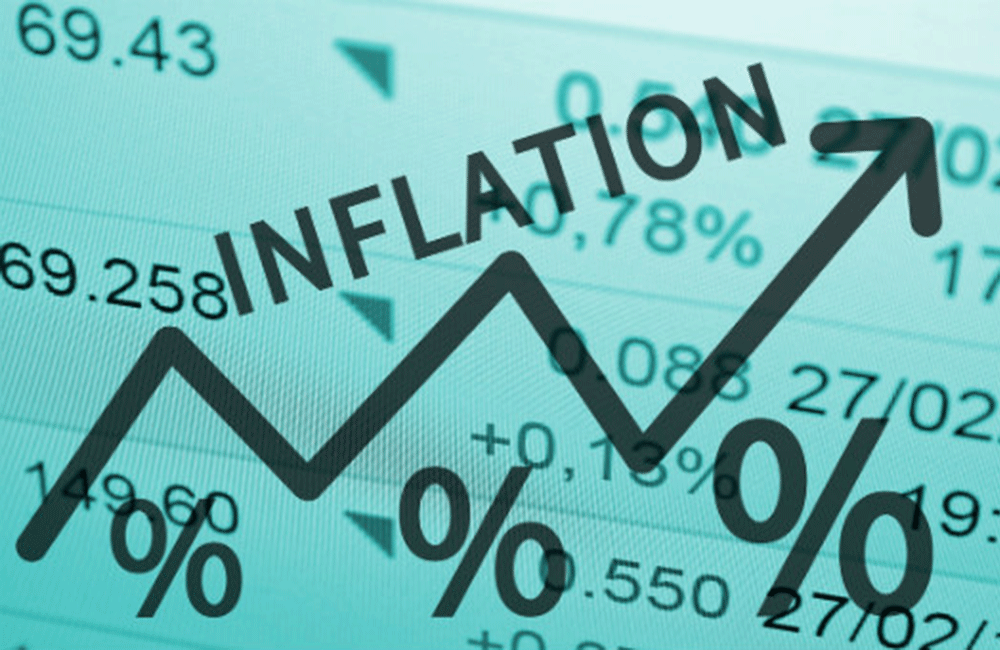
Sri Lanka inflation slows to 4.2% in March 2018
Sri Lanka's inflation in the 12-months to March 2018 slowed to 4.2 percent from 4.5 percent a month earlier, with prices falling 0.4 percent during the month, data from the state statistics office showed.
The Colombo Consumer Price Index fell to 121.4 points in March 2018 down from 121.9 points in February. The index had fallen absolutely for three straight months since peaking at 122.9 points in December.
Sri Lanka's central bank has tightened monetary policy and has avoided printing money, in 2017 after creating a bout of inflation by printing money to collapse the currency between 2015 and 2016.
Sri Lanka's 12-month inflation peaked at 7.8 percent in October 2018 and has since started to decline.
Source : Economy Next
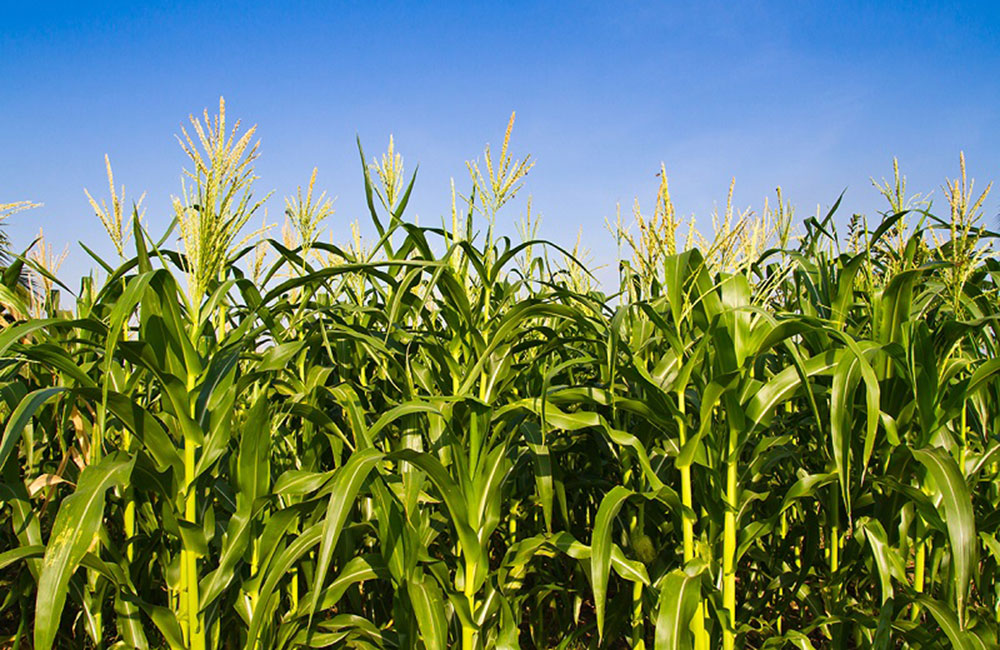
Sri Lanka maize output to rise 32% in 2018 Maha as rains return
Sri Lanka has raised a maize production forecast for the main Maha cultivation season in 2018 to 243,888 metric tonnes with 79 percent of the targeted are being cultivated by January as rains returned.
The department of agriculture said 69,500 hectares of maize had been sowed up to January 2018, up from only 45,245 in December, when only 153,978 metric tonnes of maize was expected.
The 2018 production target is up 32 percent from last year's 163,000 tonnes.
With the usually small Yala minor season output also down last year, poultry feed producers were hit when they were forced by maize at high prices from third parties who had import licenses. The Yala production was only 38,484 metric tonnes.
Direct import licenses with quotas had been given to key feed millers now.
Sri Lanka has protected maize cultivation with import duties and it is not a traded product as a result, and production costs are also higher.
Source : Economy Next

JLL Lanka releases 2018 real estate predictions for Sri Lanka
Global real estate consultancy Jones Lang La Salle (JLL) recently announced the company's predictions for Sri Lanka's commercial office and retail markets in 2018, identifying opportunities related to the increased investments in the country and broad challenges in the face of policy inconsistency and a tighter fiscal environment.
JLL is a professional services and investment management firm offering specialized real estate services to clients in more than 80 countries worldwide. The Fortune 500 Company operates from 280 corporate offices with a global workforce of 70,000 providing management and real estate outsourcing services for a property portfolio of 4 billion square feet.
"We remain optimistic about the commercial sector real estate space," noted JLL, Lanka, Managing Director Steven Mayes. "However, we are advising our clients to remain cautious about retail and residential markets, both of which face challenges going forward."
The commercial sector continues to gather pace buoyed by strong demand, especially in the international grade A space which is currently undersupplied in Colombo 1, 2 and 3. The residential sector, especially high end condominiums, faces over supply challenges, with the recent re-imposition of 15% VAT on condominium sales, denting sentiment further. Retail markets too demonstrate less sustainability, in the medium to longer term, due to the considerable number of ongoing mall development projects.
The existing stock of office space in the grade 'A' sector in Colombo is just over 1.5 million square feet. When considered in the context of anticipated total demand for Grade 'A' in 2018, at around 5 million square feet, it is very apparent that there is a shortage of about 200% in supply. Absorption of most Grade 'B' spaces have also seen an uptick, as occupiers run out of Grade A options and are forced to compromise with alternatives.
While an uptick in demand is expected for spaces in Colombo from IT and related sectors stemming from 2018 budget provisions for the sector, it would be prudent to note that IT companies typically prefer out of town locations and lower cost options to fit with their business model.
The newly signed Free Trade Agreements with India and Singapore are also positives for the economy and the maintenance of robust demand for commercial office space. Infrastructure development focused on connectivity between Colombo and Kandy could potentially increase tourism activity, further infrastructure developments, logistics activity, and generate more general business, which will bring in more demand for office space in both cities.
Prospects for the retail sector look encouraging over 2018/19, but beyond this lies potential excess supply issues. While the ongoing mall developments will experience the 'first-mover' advantage, those that follow may experience demand related issues due to a lack of brands to occupy space.
The longer-term success of this sector is heavily dependent upon government policy, especially with import tariff rates and infrastructure spending, on roads and public transport, as traffic congestion is a major impediment to retail growth. In current retail outlets demand for space still outstrips supply, but the gap will narrow after 2019, with other malls coming on stream in central and secondary business districts and residential zones.
Source : Colombo Page
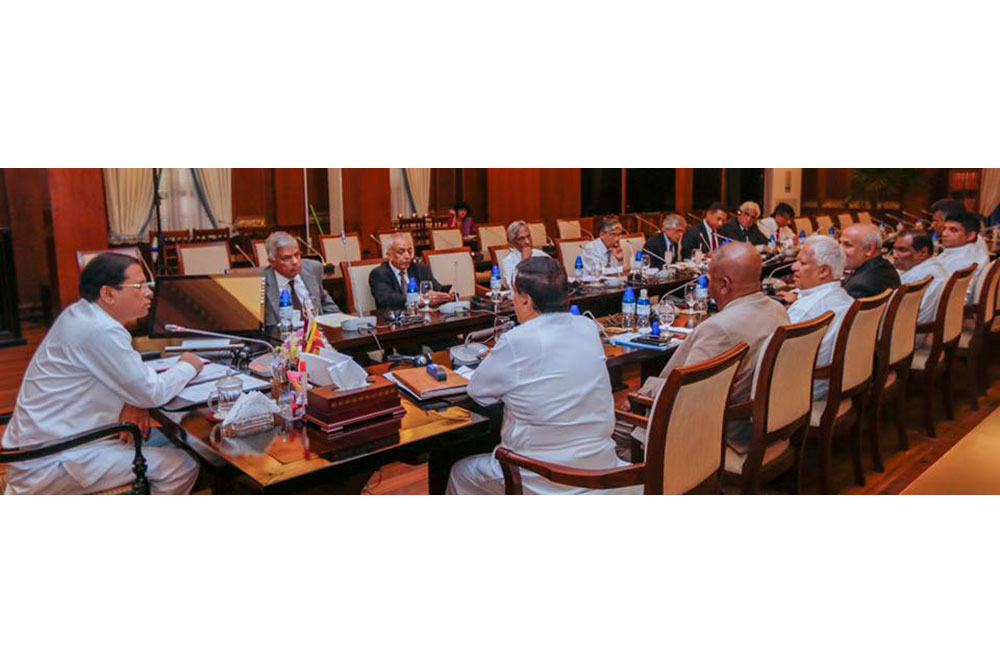
SL to launch a new economic development programme from next week
The National Economic Council has decided to introduce a programme that will bring in swift management changes with a view to strengthening the national economy. The programme is expected to be launched next week, the Presidential Media Division said.
The decision was taken when the National Economic Council, chaired by President Maithripala Sirisena, met at the Presidential Secretariat today (20).
The discussion focused on short, medium and long-term strategies that are vital to the transformation and development of the economy.
The National Economic Council, which convened for the eight time, was established by President Sirisena last year to strengthen the national economy by formalizing the economic management in the country.
Prime Minister Ranil Wickremesinghe and Ministers Mangala Samaraweera, Sarath Amunugama, Nimal Siripala de Silva, John Seneviratne, Sajith Premadasa, Rauff Hakeem, Malik Samarawickrama, Faizer Mustapha and Navin Dissanayake were also present at the discussion.
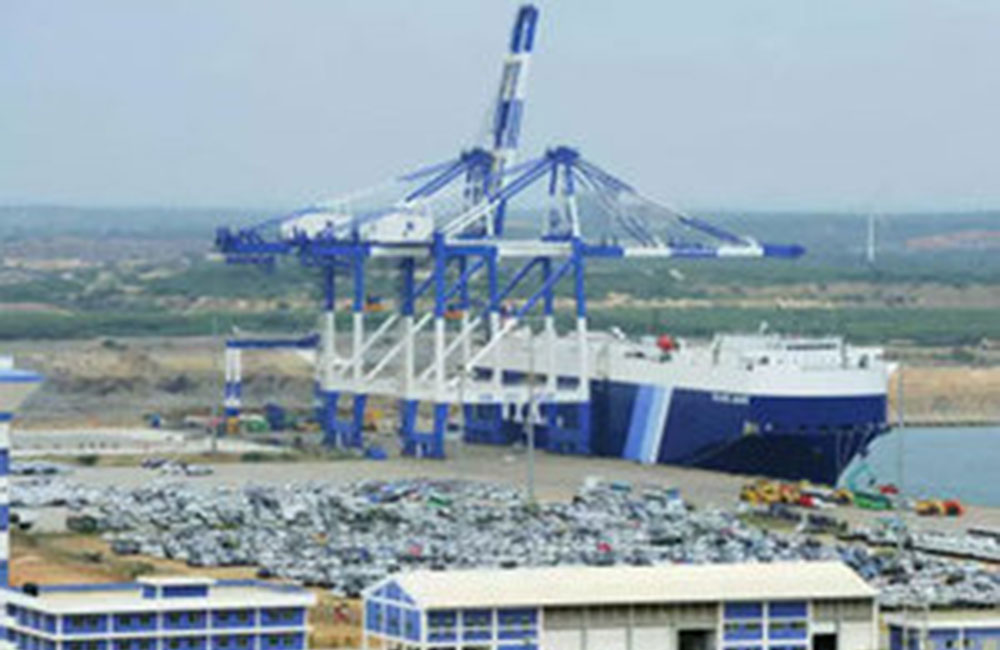
India still to play role in Lanka's port
India continues to remain in fray to play a role in the strategically located Colombo Port in the Indian Ocean Region, notwithstanding the Sri Lanka’s decision to drop plans to privatise the port’s East Container Terminal (ECT).
In a statement last week, Sri Lankan minister for ports and shipping Mahinda Samarasinghe said the construction of the terminal was being expedited by the Sri Lanka Ports Authority (SLPA), a state-run agency in the island nation. The ECT will be operated by the SLPA "to ensure best services for all mega container vessels calling at the Port of Colombo in near future”, the minister said.
President Maithripala Sirisena’s government seems to have come under pressure to scrap the plan due to fear that the port’s privatisation could cost a large number of jobs. SLPA was also against privatisation citing this reason, people familiar with the matter told ET.
An India-led consortium, was front-runner for the ECT project, was earlier intimated of the domestic sensitivities arising out of the decision to privatise the project.
But the Indian consortium would still likely play some role in the project but the details of that have not yet been decided, a person familiar with the matter said.
SLPA claimed that it had resources to handle the ECT expansion project, since China Merchants Port Holding has now taken over running of the lossmaking Hambantota Port. The ECT project involves running of an existing 400-metre deep-water berth, as well its expansion to 1,200 metres, including design, finance, construction, operation and maintenance.
Colombo wanted a foreign country to partner with SLPA to invest and take over the ECT, and India showed interest in the project.
As much as 75% of trans-shipment from the Colombo port goes to India and Delhi is looking at getting a stake there in the heart of the Indian Ocean Region. Besides Colombo, in eastern part of Sri Lanka, India and Japan would jointly develop the Trincomalee port.
State-run Container Corporation of India formed a consortium with APM Terminals BV, John Keells Holdings and Maersk Line to bid for the Colombo port’s ECT. The total project value was expected to be $550-600 million. The south terminal of the port is already owned and operated by China Merchants Port. Colombo Port is the busiest in Sri Lanka and ranks among the top 35 in the world.
Meanwhile, Indian think tank Gateway House in a report on Beijing’s footprint in South Asia said China had invested or committed to invest more than $150 billion in the economies of Bangladesh, the Maldives, Myanmar, Pakistan, Nepal and Sri Lanka. China is now the largest overseas investor in the Maldives, Myanmar, Pakistan and Sri Lanka, it said.
Chinese penetration is the highest in Myanmar and Pakistan, where Chinese money is bolstering governments that face international isolation due to human rights violations and terrorism, respectively, the report said. But Bangladesh, the most vibrant economy in India’s neighbourhood, is least dependent on China.
“China’s playbook is clear: It first enters as a military supplier, then cultivates and partners with local elites, provides modern infrastructure with deferred payments, and entrenches itself,” the recently published report said. “Beyond hard infrastructure, China is thinking geo-economics. It is investing in the financial systems of these countries. Beijing has taken stakes in the Dhaka and Karachi stock exchanges and cultivated a yuan trade between China and Pakistan. It is establishing China-based courts for arbitration of BRI disputes. Clearly, Beijing seeks to create new rules, governing business and financial systems in the region — changes that could cement its dominance in India’s neighbourhood,” it said.
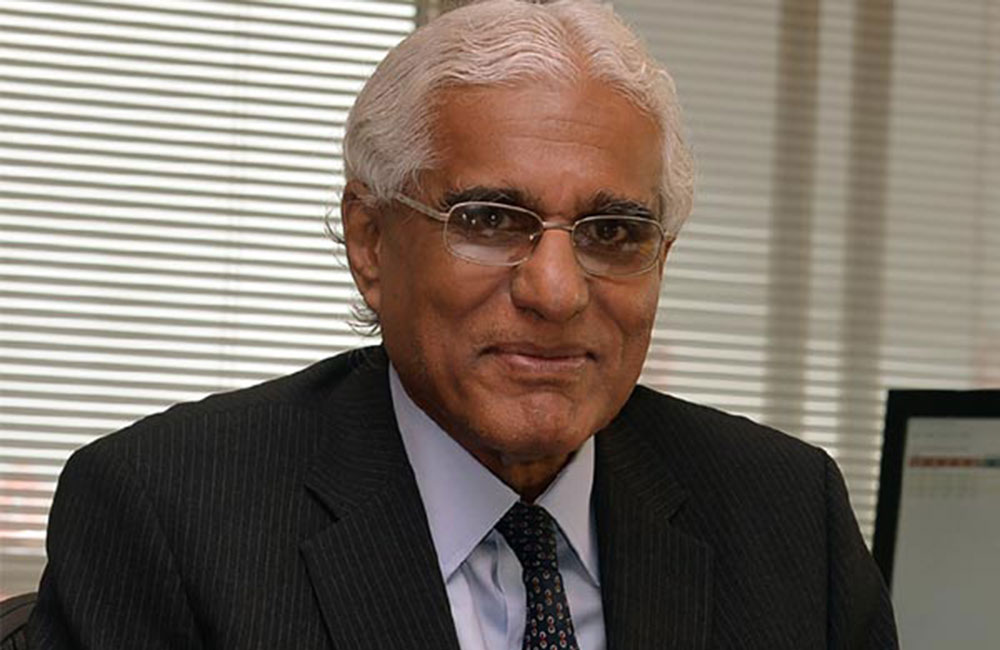
Central Bank keeps interest rates on hold to bolster GDP growth
Sri Lanka’s central bank kept its benchmark interest rates unchanged to help bolster an economy that’s been hit by bad weather across the South Asian island.
Governor Indrajit Coomaraswamy held the standing lending facility rate at 8.75 percent and the standing deposit facility rate at 7.25 percent, the Central Bank of Sri Lanka said in a statement from Colombo on Thursday. The move was predicted by six of the seven economists in a Bloomberg survey.
The worst drought in 40 years, followed by the most severe flooding in over a decade, curbed growth last year, while disrupting supply chains and pushing the inflation rate above the central bank’s target range of 4 percent to 6 percent. Consumer prices rose 5.8 percent in January from a year ago.
“The decision of the Monetary Board is consistent with the objective of maintaining inflation at mid-single digit levels over the medium term and thereby facilitating a sustainable growth trajectory,” the central bank said. “The economy is currently operating at a level below its potential,” but should recover from weather-related effects as trade and foreign direct investment picks up, it said.
The central bank has been on hold since raising rates in March last year. The International Monetary Fund has said it supports Sri Lanka maintaining a tightening bias and the monetary authority should contain credit growth and inflation.
(Bloomberg)
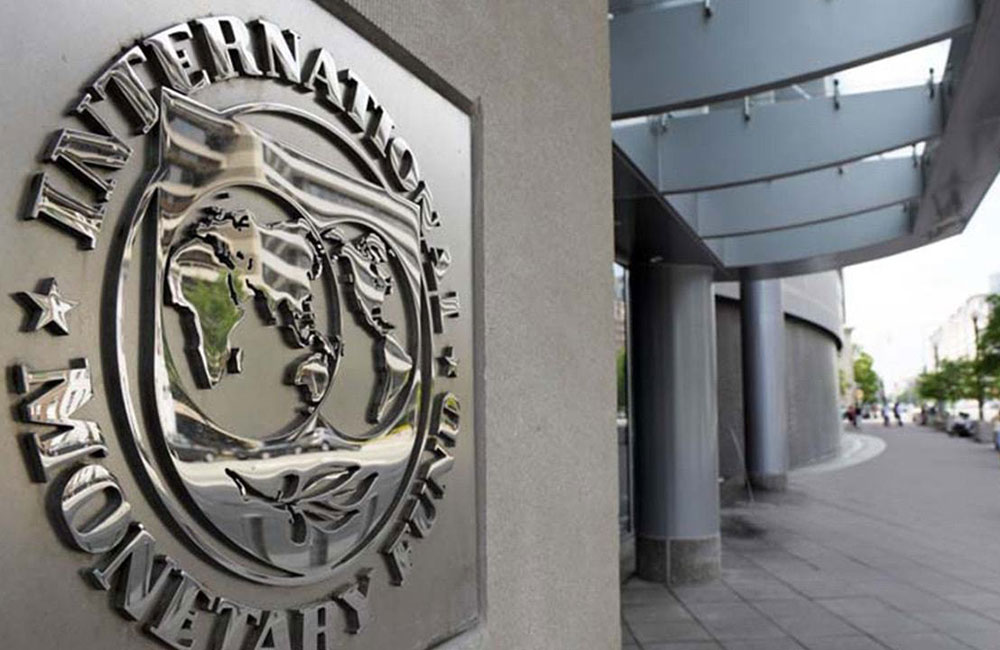
Reforms have progressed SL but vulnerabilities remain: IMF Staff Mission
Despite weather-related shocks and some delays in implementation, program performance remains broadly on track, said IMF Staff Mission after a recent visit to Sri Lanka.
The IMF staff team led by Manuela Goretti visited Colombo from February 27 – March 9 to hold discussions for the fourth review of Sri Lankan authorities’ economic reform program under the three-year Extended Fund Facility.
The mission projected the real GDP growth to rise to 4.4 percent in 2018, supported by a recovery in agriculture and industry and robust growth in services, reaching 5 percent over the medium term.
They also projected the inflation to revert to around 5 percent by end-2018, as food prices stabilize.
The mission, however, said the economy remains vulnerable to adverse shocks given the still sizable public debt and low external buffers.
“Looking ahead, to support inclusive, sustained growth, the reform momentum needs to continue and policy frameworks and institutions further strengthened,” the IMF said.
“Against this backdrop, the authorities should push ahead with their Vision 2025 strategy to support Sri Lanka’s rapid and inclusive growth through ambitious structural, macroeconomic, and social reforms.”
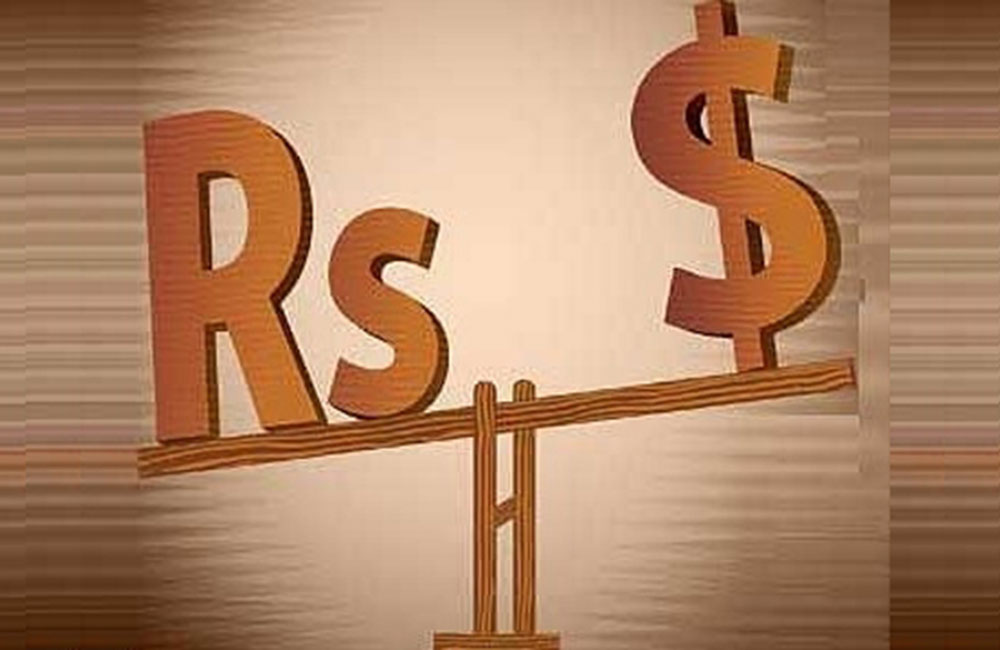
Sri Lanka Rupee hit by political uncertainty
The Sri Lankan Rupee further depreciated today due to the prevailing political uncertainty in the country. Depreciating to a record low today the Rupees was set at Rs. 155. 80 against the US Dollar by today afternoon.
Sources claim that the depreciation is being caused due to panic buying by importers due to the political situation in the country.
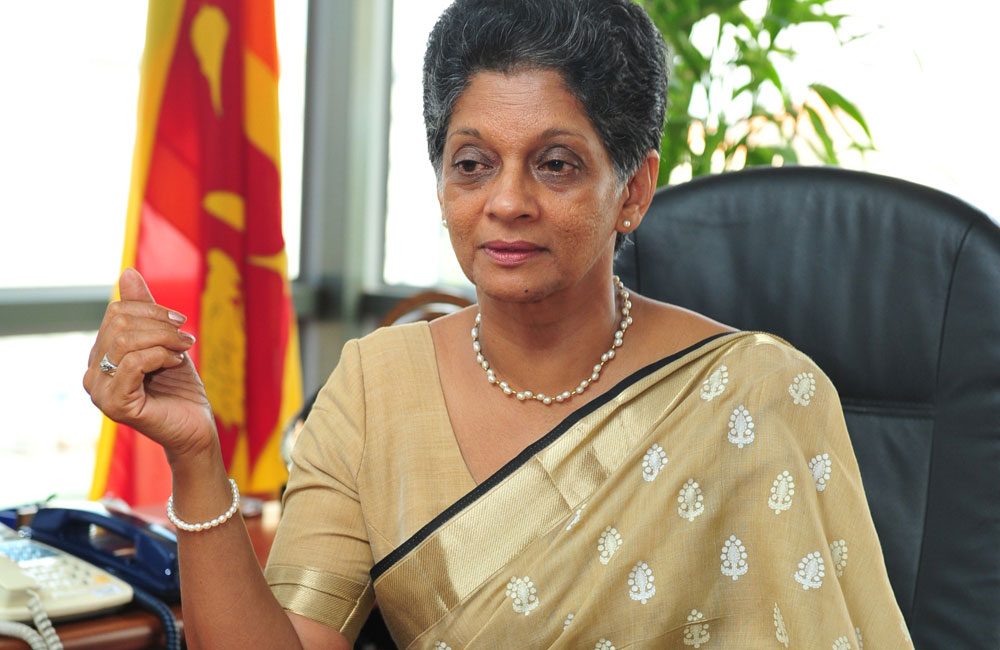
Exports expected to surge 12% says EDB chief
Sri Lanka will record an improved performance in the export sector and the value and volume are expected to increase this year, the Export Development Board (EDB) Chief said.
“Merchandise exports are expected to grow by 12% in 2018 with EU GSP+ and with the growth in NES (National Export Strategy) focused sectors. Meanwhile, services exports are expected to grow significantly during this year in achieving the current total export target of US $ 16,631 million in 2018,” EDB Chairperson and CEO Indira Malwatte said.
The current annual export target for 2018 is the US $ 16,631 million from merchandise and services exports. The EDB is geared to achieve this target in collaboration with public and private sector stakeholders, she said. According to the data released by the Department of Customs and the Central Bank, Sri Lanka’s total exports grew by 10% last year, recording the US $ 15.2 billion in exports, compared to the US $ 13.8 billion in 2016. Among other reasons, the liberalised trade policies of the Government and restoration of the GSP+ facility were key in achieving the double-digit growth recorded in 2017, she said.
“Generally, depreciation of a currency has an effect on stimulating exports which may also be true in the case of Sri Lanka. However, Sri Lankan companies import various items for export processing and these imports could be unfavourably affected by a weaker domestic currency,” Malwatte said.
The strategic vision focused on the National Export Strategy (NES) for Sri Lanka to become an export hub driven by innovation and investment is expected to boost the export sector.
The NES which has the strategic objectives of having a business-enabling, predictable and transparent policy and regulatory framework that supports exports, driving export diversification through innovation and the strengthening of emerging export sectors, strengthening Sri Lankan exporters’ market-entry and compliance capacities and becoming an efficient trade and logistics hub to facilitate exports will have far-reaching benefits for the country, she said. The focus sectors under the NES are information technology and business process management (IT/BPM), wellness tourism, spices and concentrates, boating industry, processed food and beverages, electrical and electronic components. The trade support functions include trade information and promotion, national quality infrastructure, innovation and R&D and logistics.
Source : Sunday Observer
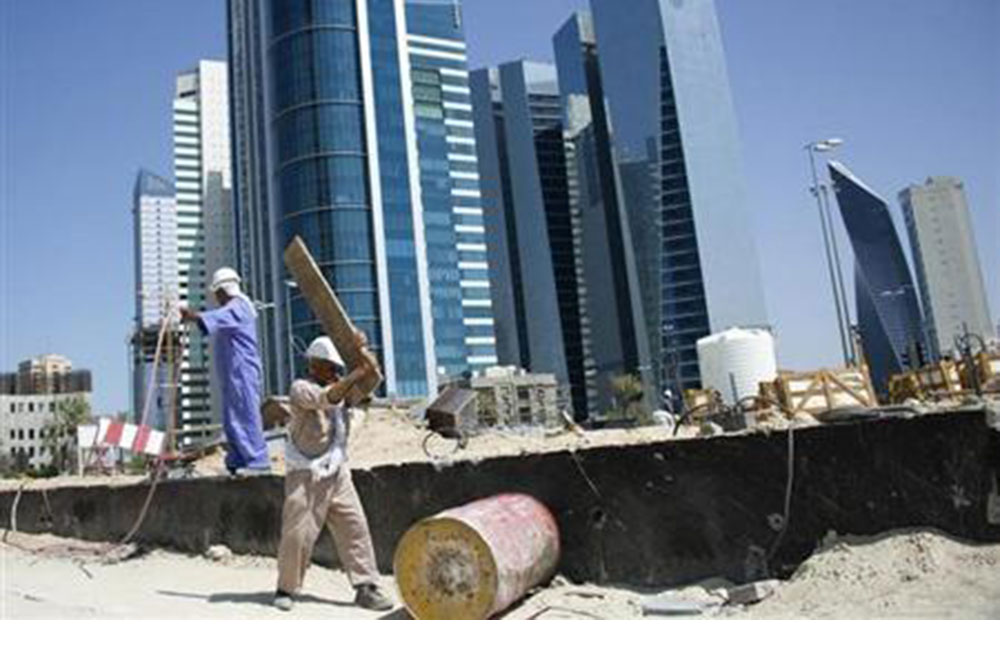
Kuwait has no plans to suspend Sri Lankan labour; discussions underway to increase technical personnel
Kuwait’s Minister of Social Affairs and Labor and Minister of State for Economic Affairs Hind Al-Subeeh praised the strong bilateral relations between the Kuwaiti and Sri Lankan governments during the Independence Day celebrations held at the Sri Lankan Embassy in Kuwait and denied reports that suggested an imminent suspension of Sri Lankan labour in Kuwait, the Al-Anba Daily reported.
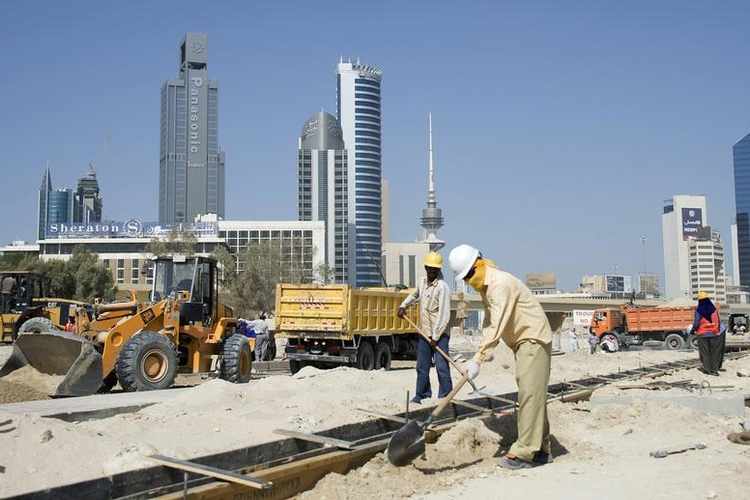
Construction workers on the site at the Jahra roundabout in Kuwait City .
Minister Al -Subeeh described these relations as continuous and devoloping since 1971. The Minister described the Sri Lankan workforce in Kuwait as organized and ‘healthy’.
She said that discussions are underway to raise the proportion of Sri Lankan technical personnel in the private sector companies in light of the agreed terms and recommendations agreed upon during the fourth consultative meeting of the Abu Dhabi-Sri Lanka 2017 dialogue.
Sri Lanka’s Ambassador to Kuwait Kaandeepan Balasubramaniam said bilateral relations with Kuwait have always been excellent and cordial, and describing Kuwait as a regional friend. He said Sri Lanka was at the forefront of countries that supported the Kuwaiti right at all international forums when it was subjected to the brutal Iraqi occupation.
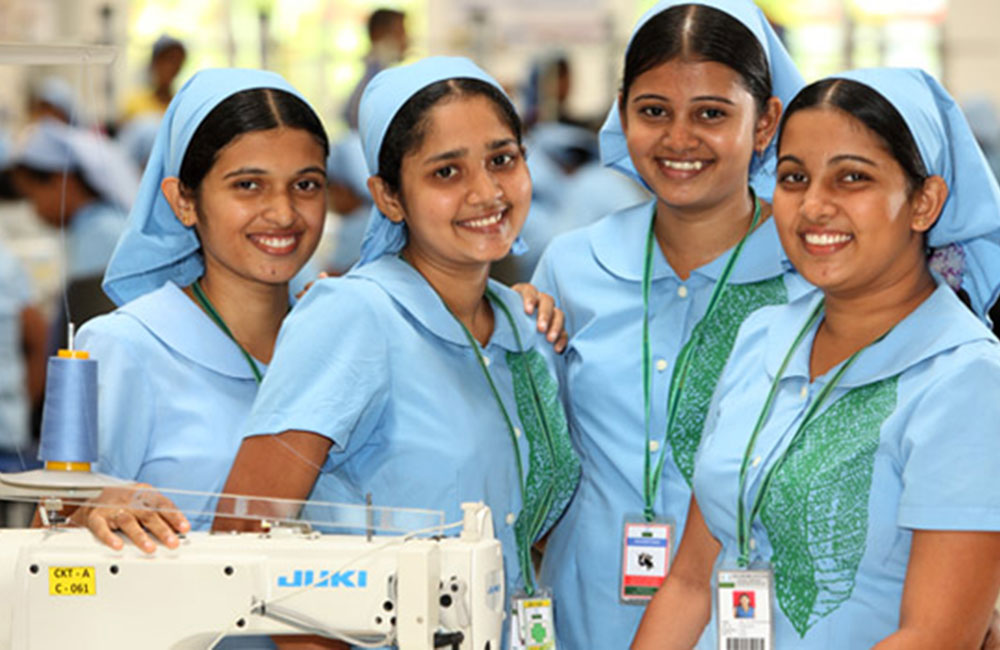
Textiles to lead Lanka’s export revival in 2018 - OBG Group
Sri Lanka’s apparel and textile export segment is likely to experience the highest rate of growth and would be the key driver towards Sri Lanka’s 2020 export earnings target of $ 20 billion.
A survey by Oxford Business Group (OBG) Business Barometer with CEOs who took part in a face-to-face survey predicted that the garments industry would be the growth engine for exports in the year ahead, followed by tea and spices at a distant second with 14%. Textiles and tea are the backbone of Sri Lanka’s tradable sector, respectively comprising 47% and 12% of total exports in 2016.
Asia Regional Editor, OBG, Patrick Cooke, says that under President Maithripala Sirisena’s National Export Strategy, ICT, wellness tourism, spice concentrates, boat building, processed food and beverages, and electronics,machinery were identified as the six priority areas for diversifying the country’s export base.
“While diversification will certainly contribute to meeting the government’s bold targets, it is clear that local business leaders expect traditional industries to underpin growth for the foreseeable future.”
Export industries received a welcome boost in May 2017, when the EU reinstated Sri Lanka’s Gener¬alised Scheme of Preferences Plus (GSP+) status, which had previously been rescinded over human rights concerns in 2010. GSP+ status removes the majority of import duties on Sri Lankan goods entering the European single market, and likely drove the 13.8% year-on-year increase in garment exports to the EU in November 2017.
Even though the immediate future looks bright for the garments segment, Sri Lanka would be wise to devise adaptation strategies for technological advancements in manufacturing processes. Developments in innovative areas such as 3D printing and robotics are likely to erode some of the country’s current competitive advantages in the years to come, as without the need for lower labour costs, clothing giants may start to move production facilities closer to their main consumer markets.
Commenting on the future outlook for Sri Lanka the report says that Lanka should look towards successfully transitioning into a productive knowledge-based economy while still honoring debt commitments. The sustained pursuit of an open trade policy to attract value-added industries with accompanying skills transfer, as well as efforts to enable small and medium-sized enterprises to integrate into global and regional supply chains, will aid this endeavour. Being situated between the Middle East and Asia, with close proximity to the emerging economic superpower of India, the opportunities presented by the nation’s strategic geographic position should not be overlooked either.
“At the same time, the country may benefit from opening the higher education system to private and international investment, though this will entail overcoming domestic opposition. This could help prevent the brightest minds from pursuing academic studies overseas and would introduce new approaches to creative thinking and entrepreneurship, which may ultimately lead to the creation of more high-value jobs at home.”
Effectively countering the persisting brain drain will also require a coherent strategy to address the slide in female participation in the labour force, in turn enabling Sri Lanka to harness the full potential of its society.
Source : Daily News
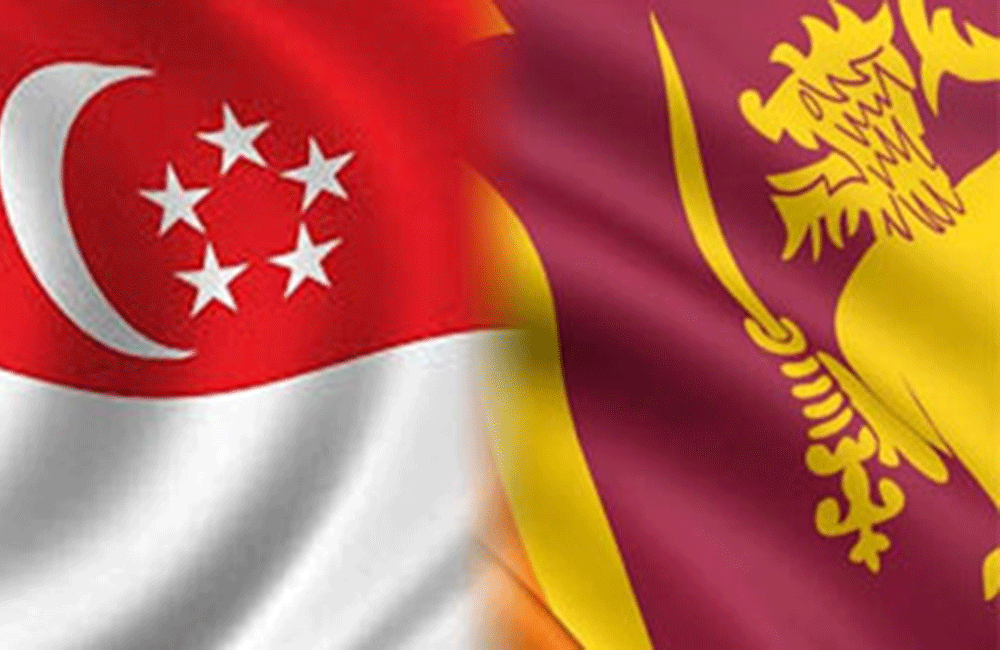
Sri Lanka, Singapore FTA is credit positive for both nations:Moody's
The free trade agreement signed last week between Singapore (Aaa stable) and Sri Lanka (B1 negative) will enhance the cross-border trade of goods and services and promote foreign direct investment (FDI) between the two countries, a credit positive for both, said ratings agency Moody's Investors Service on Monday (29).
The Sri Lanka-Singapore Free Trade Agreement (SLSFTA) is Singapore's 21st trade agreement with 32 trading partners, and reiterates Singapore's commitment to free and open markets.
"Particularly within the region, the agreement promotes the growth of outward Singaporean investment, helps maintain its strong positive net international investment position (224 per cent of 2016 GDP), and solidifies its strength as a hub for global trade, finance, and logistics," said Moody's.
Singapore also stands to save about S$10 million each year as Sri Lanka will eliminate tariffs on 80 per cent of Singapore's exports over the next 15 years.
But the pact will have a bigger effect on Sri Lanka's credit quality because the potential increase in current account inflows and inward investments would help reduce its elevated external vulnerability, said Moody's.
Because Singapore already does not impose import duties on 99 per cent of the items listed in the tariff schedule for Sri Lankan exports to Singapore, the pact's main trade benefits for Sri Lanka will materialize through the opening of access to the broader Association of Southeast Asian Nations (Asean) market and other large economies given Singapore's existing preferential trade arrangements with Australia, Japan, Korea and other countries in Southeast Asia, said Moody's.
In 2017, Sri Lanka was Singapore's 37th-largest trading partner, while Singapore was that nation's eighth-largest trading partner. Their bilateral trade amounted to about 0.5 per cent of Singapore's gross domestic product (GDP) and 2.5 per cent of Sri Lanka's.
The extent to which the SLSFTA reduces Sri Lanka's external vulnerability will depend on its effectiveness at bolstering services and investment flows, said Moody's. Sri Lanka's current account has a structural deficit because a large merchandise trade deficit more than offsets a surplus in services and remittance inflows, the agency explained. Moreover, FDI inflows only partially finance the current account shortfall, resulting in a persistent basic balance deficit, it added.
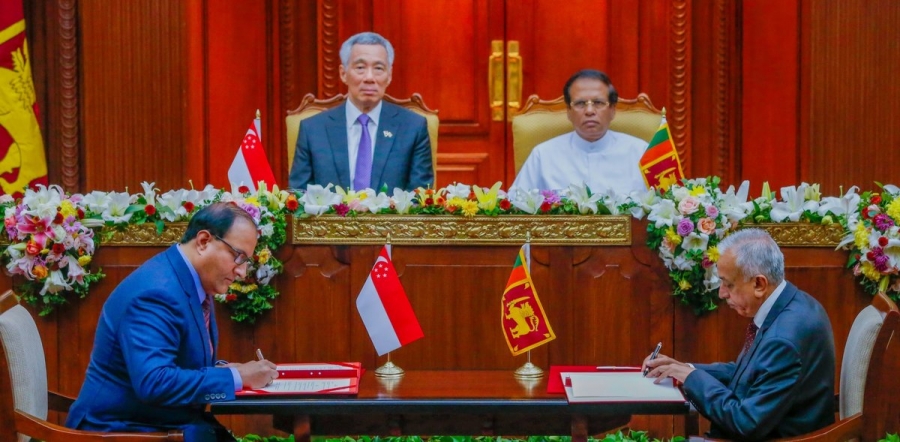
Minister for Development Strategies and International Trade Malik Samarawickrama and Minister for Trade and Industry of Singapore S. Iswaran signing the FTA in the presence of President Maithripala Sirisena and Prime MInister Lee Hsien Loong.
Moody's said the pact is likely to boost Sri Lanka's services receipts, particularly in tourism.
Using travel and passenger transport by air as a proxy, tourism accounts for about three-quarters of the services surplus. Although Singapore comprised less than 1 per cent of Sri Lanka's total tourist arrivals in 2017, the SLSFTA may allow Sri Lanka to leverage Singapore's transportation hub to attract more tourists, said Moody's.
Additionally, there are provisions on the cross-border transfers of information by electronic means and data flows, which could aid Sri Lanka's burgeoning IT services sector, said the agency.
Moody's also expects the agreement to promote direct investment in Sri Lanka by Singapore companies. According to the Sri Lankan government, FDI from Singapore totaled US$658 million (less than 1 per cent of Sri Lanka's GDP) during 2006-17 in sectors such as food manufacturing and real estate. By easing regulation in the services sector, the SLSFTA will broaden the scope of investment to other areas such as infrastructure, logistics, education and healthcare, said Moody's.
The agreement also protects against expropriation, improves transparency through safeguards against discriminatory treatment and provides for a dispute resolution mechanism, all of which create a better investment climate to attract FDI, said the agency.
(Straights Times)
Page 17 of 20